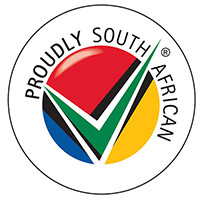Survival figures for local SMMEs are concerning for a sector often lauded as being the engine for growth in our economy. Only 37% survive to their 4th year and by the 10- year mark, only 9% are still alive. A shocking 70-80% never make it to celebrate one year in business.
The two key contributing factors for the success or otherwise of businesses are access to funding and access to markets with the latter being the main determinant.
Access to markets is a complex issue. There are many factors that prevent successful penetration into the broader supply chain by small businesses, many of which operate from our townships. Overall, the Kasi economy is worth billions of Rands but taken on a case-by-case basis, many companies that contribute to that turnover never grow or move up and out.
What prevents these local businesses from gaining access to the mainstream economy? One problem is creating too niche a product. They say necessity is the mother of invention, and townships are the masters of creating innovative solutions to very local problems, but that might not always translate into a commercially viable idea. It therefore pays to think beyond your immediate community needs.
Then there's infrastructure challenges in the places where many small businesses are located - how to transport products in and out, to expand premises and establish a secure and safe operating environment.
Infrastructure challenges include of course the provision of essential services such as reliable water and electricity
supplies, which is not always the case in some locations.
In addition, where there are high levels of poverty, there is bound to be lower demand than in more affluent areas, and so building a market for a product or service can be difficult if there are few people that know about you and fewer that can afford to buy what you are selling.
Compliance with all the legislation that governs business including tax compliance, SABS approvals, health and safety certification, and operating licenses can be overwhelming for any new business.
But once a business owner has come through these challenges ready to do business, they still need assistance with accessing markets, and this is where Proudly South African helps its members.
Outside of our consumer targeted activities, we focus on sector specific interventions - pre covid-19 this included trade shows and exhibitions, where we are able to offer relevant member businesses space at these events at no additional cost. At our own recent Buy Local Summit & Expo, around 100 members took 'virtual' space and the entire site will remain live and active for the coming year, primarily for access by buyers and purchasing decision makers needing to find suppliers of locally made products and services.
Our online database of local products, quality assured and vetted by Proudly SA, is another market platform for members, and we have positioned it well to be the preferred source for companies looking to procure locally manufactured and produced goods and services. Our website includes portals specifically for matchmaking deals in the provision of medical PPE, masks, face visors, hand sanitisers and detergents and disinfectants.
Our online shopping and B2B site, www.rsamade.co.za is a great outlet for our members, for whom listings are free. Members who wish to do business with government will automatically be entered on National Treasury's Central Supplier Database, and they will also receive email notifications from us of any tender or RFQ issued by any of the three tiers of government or an SOE, that relates to items designated by government for local procurement under the Preferential Procurement Policy Framework Act. This tender monitoring system serves a dual purpose in that it allows us to alert members who qualify to tender for the procurement opportunity as well as to monitor government compliance with its own regulations.
Government may be the single largest procurer in the country with a responsibility to buy local, but businesses must also look at their own supply chains and buy whatever raw materials and every day supplies that they need to run their operation from other local businesses. And every one of us is a consumer in our own rights, and can make buying local choices every day - and our everyday choices impact on the economic future of the country as whole.
Credit: Business Hi-Lite, magazine of the Border Kei Chamber of Business


